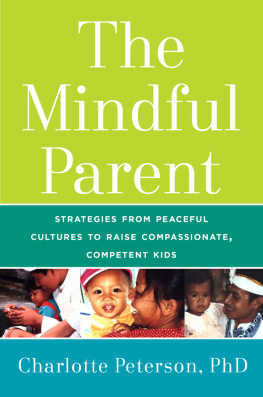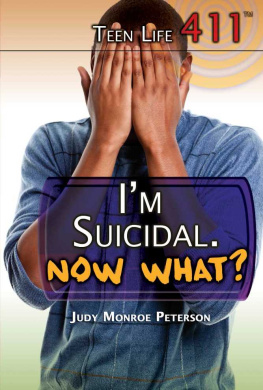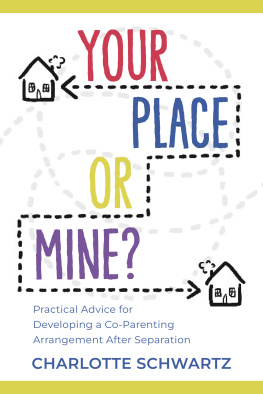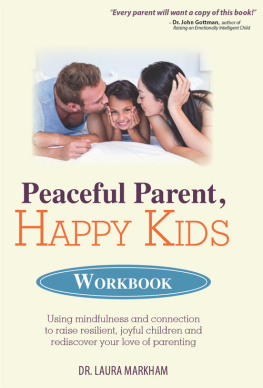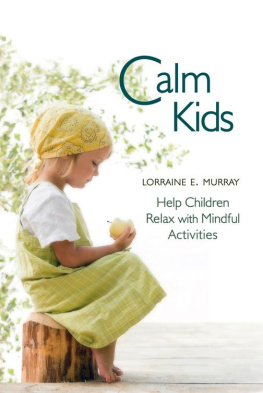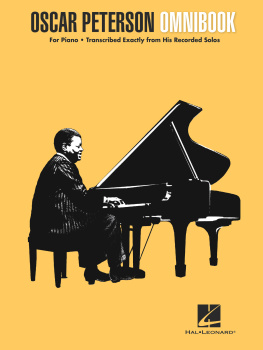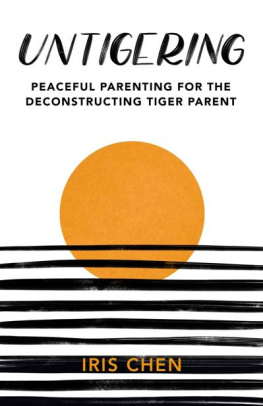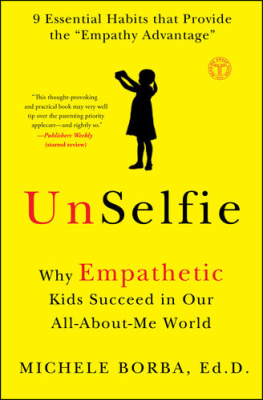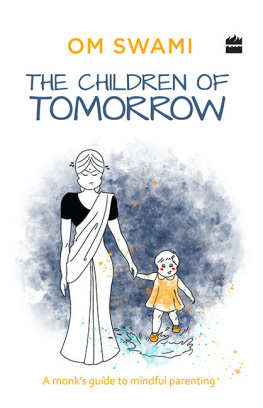Copyright 2015 by Charlotte Peterson
All rights reserved. No part of this book may be reproduced in any manner without the express written consent of the publisher, except in the case of brief excerpts in critical reviews or articles. All inquiries should be addressed to Skyhorse Publishing, 307 West 36th Street, 11th Floor, New York, NY 10018.
Skyhorse Publishing books may be purchased in bulk at special discounts for sales promotion, corporate gifts, fund-raising, or educational purposes. Special editions can also be created to specifications. For details, contact the Special Sales Department, Skyhorse Publishing, 307 West 36th Street, 11th Floor, New York, NY 10018 or .
Skyhorse and Skyhorse Publishing are registered trademarks of Skyhorse Publishing, Inc., a Delaware corporation.
Visit our website at www.skyhorsepublishing.com.
10 9 8 7 6 5 4 3 2 1
Library of Congress Cataloging-in-Publication Data is available on file.
ISBN: 978-1-63450-446-1
Ebook ISBN: 978-1-6345-0464-5
Printed in the United States of America
To Dr. Vivian Olum:
Who taught me about listening to a child.
To Grandma Dina:
Who taught me about being cherished as a child.
To Julie Gerald:
Who taught me about loving a child.
To Shane and Emily:
Who continue teaching me about being a better mother...
To Ellis and Oliver:
Who are just arriving to escort me into the whole new world of being a Grammy...
And:
To all the parents in the world who showed me how to nurture children.
To them I owe great gratitude, as I would have been a much less kind and patient parent without their examples.
People often ask me what is the most effective technique
For transforming their lives.
It is a little embarrassing after years and years of
Research and experimentation,
I have to say that the best answer is
Just be a little kinder.
Aldous Huxley
Three things in human life are important...
The first is to be kind.
The second is to be kind.
The third is to be kind.
Mother Teresa
Table of Contents
A PPENDIX
Indicators of Children in Crisis
Introduction
Its not our job to toughen our children up to face a cruel and heartless world.
Its our job to raise children who will make the world a little less cruel and heartless.
L. R. Knost
Have you ever wondered how kind people got that way? Anyone who has gazed into a newly born babys eyes knows that the very essence of human nature is a deeply profound yearning to form a close, loving relationship. Kindness is not something that needs to be taught; its something that needs to be protected and nurtured from the beginning of life. Parenting practices in peaceful cultures have much to teach us about preserving this precious desire for connection that resides inside every newborn. When parents open their hearts and respond sensitively to their infants, kind, joyful, and trusting children are the result.
Children in this country, however, are not faring so well. Currently, twenty percent of all kids in the United States are being diagnosed with a psychological disorder. The United States uses ninety percent of all the medications in the world that are given to children for mental health issues. The suicide rate of children has doubled in the past twenty years. There is also a dramatic increase in the severity of bullying. We even have kids using firearms to kill parents, teachers, and other children. This current epidemic of childhood psychological distress, aggression, and bullying has got to be understood so it can be reversed. (See the for Indicators of Children in Crisis.)
Parenting practices are usually culturally-based: learned from our parents (for better or worse), pediatricians (who are typically not trained in childrens emotional needs), and the popular how-to parenting books of the day. As a psychologist for the past thirty-five years, I have found that the majority of my clients carry painful early memories concerning how they were parented, although I have never encountered parents who intentionally wanted to harm their children. A serious disconnect seems to exist between accepted parenting practices and actual understanding of childrens needs. The way babies are treated from the very beginning leaves an imprint on their self-esteem, overall happiness, and comfort with relationships throughout their lives. While most parents deeply love their children, many have trouble showing their youngsters, even when babies, the most important ingredient: that they are completely and unconditionally cherished. (Reference to babies includes the time during pregnancy, birth, and the first three years of life.)
In my early twenties, I began traveling and immersing myself in other cultures. Initially, I was just excited to be exploring the world, but I soon began to focus on the children I encountered along the way and how they were being parented. It is usually believed that the way something is done in ones country of origin is the way it should be done, and I had never considered there were other ways to raise children. I was, in fact, astonished to witness how differently youngsters were being parented in some parts of the world. Especially noticeable was the closeness mothers seemed to have with their infants and toddlers. Not only were babies being breastfed, something that was quite foreign to my American eyes in the 1970s, but also they were constantly worn on their mothers bodies, responded to quickly, and seemed delightfully calm and content. In many Western countries, it has traditionally been frowned upon to quickly tend to crying babies, due to the fear that infants would become spoiled if given too much attention. I had assumed that babies everywhere were treated similarly by their busy parents and spent much time alone often fussing in cribs, playpens, and highchairs. I quickly realized this was not the case, and began questioning if there is actually a right or best way to parent infants and toddlers. Since all human babies are biologically the same, could different parenting styles produce children who were more joyful, gentle, and caring?
This question began my lifelong pursuit of observing babies throughout the world, attempting to understand which parenting practices create the most positive relationships and the most enjoyable, kind children. I have spent three to six months every five years for the past four decades living in a different part of the world and, to date, have observed parenting in over sixty countries and on nearly every continent. During the past twenty-five years, I have focused my travels on cultures that have a history of being nonviolent. Spending time with Tibetan, Balinese, and Bhutanese parents, I am convinced that their close parent-child relationships beginning from preconception, along with their extremely gentle, attentive, and compassionate nurturing of newborns and toddlers, do indeed grow kinder kids.
The Mindful Parent shares parenting wisdom I have gathered from indigenous parents, grandparents, professionals, and village leaders that help infants and toddlers become more self-reliant, cooperative, happy, and caring children. Extensive interviews providing excerpts, which are scattered throughout this book, were conducted in Bhutan, Bali, Japan, and the Tibetan community in Northern India. To the people of nonviolent cultures I owe great gratitude. Numerous parents, including myself, have raised delightfully kind children following their examples.

